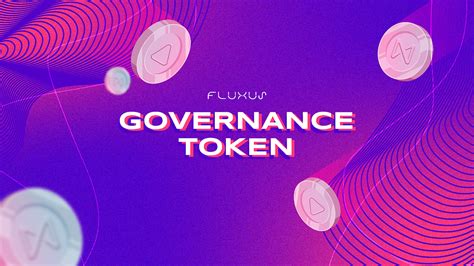Governance token with Ripple (XRP) Understand: A comprehensive guide
The world of cryptocurrencies has increased innovative blockchain-based solutions, of which a governance token is. In particular, due to its decentralized governance model, the XRP token from Ripple has gained considerable attention, which makes it an attractive choice for investors and users alike. In this article we will deal with the concept of governance token, your differences to traditional tokens and your work with Ripple (XRP).
What are governance token?
Governance token, also known as a supply note or voting token, are a kind of cryptocurrency that represents ownership of a project or organization. You can offer the stakeholders a way to take part in decision -making processes and coordinate with suggestions. In contrast to conventional tokens, which mainly aim to create value by using them as an exchange medium (e.g. Bitcoin), governance token pursue a more participatory approach.
How do governance token work?
Governance token typically follow a certain structure:
- Property : Owners hold the token and represent their share in the project or organization.
- Voting mechanism : When proposing to change or changing the rules of the token, an investor can coordinate with the governance token.
- Decision-making : The voting mechanism ensures that suggestions are coordinated among all token owners and decisions are made with the most votes.
Ripple (XRP) Governance Token
The XRP token from Ripple is designed taking into account the decentralized government. Here are some important functions:
- Decentralized decision-making : Ripple (XRP) works with a consensus salgorithm of the proof-of-stake (POS), which means that the network is dependent on validators to create new blocks and ensure security.
- ** token owner Voting Rights
- Customized Voting Mechanism
: The governance model from Ripple enables tailor -made coordination options and enables token owners, changes or changes based on certain tokens.
Advantages of governance -token
Governance token offer several advantages, including:
- increased transparency : The decentralized governance ensures that everyone involved has access to the decision -making process.
- Improved accountability

: Token owners can see who voted for what and offers more transparency and trust in the project.
- Improved participation : Governance token encourage token owners to participate in the decision-making process and promote commitment and property.
Challenges and risks
While Governance token offer many advantages, they also represent some challenges and risks:
- Centralization risk : The centralized Governance model from Ripple can lead to considering the token that is controlled by a single unit.
- TOKEN Prize Volatility : The price of XRP can be volatile due to market fluctuations, which affects the value as a governance token.
- Regulatory uncertainty : The regulatory landscape for governance -token is still developing, and its use can face challenges in some jurisdiction.
Diploma
Governance tokens such as Ripple (XRP) TOKEN are a significant shift to more participatory and decentralized blockchain-based solutions. If you understand the concept of governance token, you can better control this new world and make well -founded decisions about your investments.
Since we continue to see the rise of governance tokens, it is important that developments and best practice for industries for the use of these innovative assets will remain up to date.
References:
- “Ripple Labs” (official website)
- “XRP Ledger Foundation” (official website)
- “Blockchain for social effects” (research work by Dr.